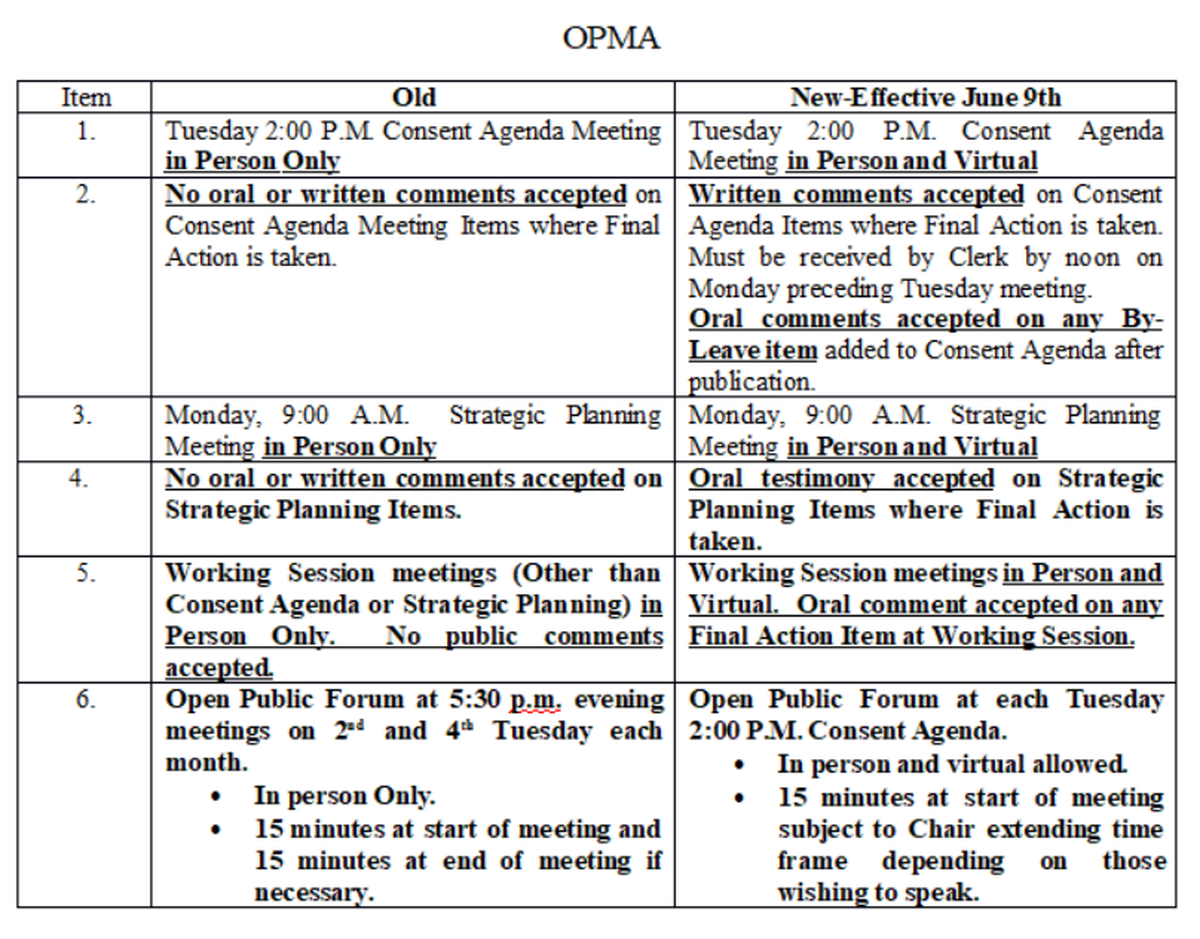Spokane County governments now have to allow more public comment, due to Legislature’s changes
The Spokane County Courthouse is backdropped by a brilliant sunset in June 2018. Recent changes to Washington law have required local governments to accept more public comment in meetings. (Dan Pelle/The Spokesman-Review)Buy a print of this photo
Opportunities for public comment at local government meetings are expanding this month, thanks to new rules the Washington Legislature passed this year.
Lawmakers added to the state’s Open Public Meetings Act, which aims to ensure transparency and opportunity for public participation in government.
Some of the updates establish rules for virtual meetings, which became commonplace during the COVID-19 pandemic. Others set legal requirements governments have to follow during emergencies.
But a few of the changes are more general. Governments now have to accept public comment “at or before every regular meeting at which final action is taken.”
Public comment gives people an opportunity to share their thoughts and concerns with elected officials.
“This mandatory public comment period, writing it into law, has been a priority of the Washington Coalition for Open Government for a very long time,” said Toby Nixon, the coalition’s president emeritus and a Kirkland City Council member.
The updates to the law, which go into effect this month, won’t equally affect every local government.
In some cases, the legislation will require governments to add additional public comment opportunities.
Some governments won’t have to change anything. For example, Spokane Valley City Attorney Cary Driskell said the City Council is unaffected because it already accepts public comment at meetings where it makes final decisions.
Spokane County has made multiple changes to comply with the revised law.
The county commissioners can no longer cast votes during their Monday meetings without accepting public comment.
Every Monday, the commissioners hold a strategic planning meeting. That meeting is primarily a time for discussion and learning from staff about important county issues. The commissioners do the bulk of their voting on Tuesdays.
Still, the commissioners make final decisions during Monday meetings regularly, even though the public mostly hasn’t been able to comment before those votes. The Monday meeting agendas also are not archived online, do not explain discussion topics in detail and do not generally say when a vote is expected.
The commissioners already were taking public comment during their Tuesday public hearings, but they now have to allow for comments on their Tuesday consent agendas.
Governments use consent agendas to take care of routine business, such as payroll receipts, equipment purchases and renewals of standard contracts. Elected officials often approve their weekly or monthly consent agendas quickly and without debate.
Still, it is likely some items on the county’s consent agenda will pique the public’s interest from time to time.
For instance, one commissioners’ consent agenda in the last year included a $1 million settlement for a lawsuit involving an officer-involved shooting. Another consent agenda included the authorization of the purchase of a $391,000 armored vehicle for the Spokane County Sheriff’s Office.
Spokane County Commissioner Mary Kuney said she thinks the changes will improve transparency, and noted that the commissioners intend to shift more of their votes to Tuesdays going forward.
But she emphasized that the county already has been taking public comment, even when the commissioners haven’t offered a formal public comment period.
“We get public comments almost every day in our emails or into our office,” Kuney said. “We never don’t take public comment.”
Nixon said the expansion of public comment requirements was overdue and probably would have happened sooner if local government lobbying groups, such as the Association of Washington Cities and Washington State Association of Counties, hadn’t resisted it.
“They pushed back against any new requirement being imposed on them,” he said.
The main reason the Legislature passed the changes this year was because they “piggy-backed” on the effort to write virtual meeting rules into law, Nixon said.
He explained that governments wanted to retain the option of meeting virtually even after Gov. Jay Inslee’s emergency proclamation ended. The ability to attend meetings virtually was popular among the general public, too, and most governments have made livestreams permanent.
Public comment periods are a key component of the Open Public Meetings Act, Nixon said. They’re one of the main ways the people can hold their representatives accountable.
“We’re the ones in charge, and we have the right to alter the government if it’s not doing a good job,” Nixon said. “We created the government to help us protect our rights, and we don’t get our rights from the government – we granted the government certain limited powers.”
The law itself makes a case for the value of public comment.
“The people, in delegating authority, do not give their public servants the right to decide what is good for the people to know and what is not good for them to know,” the Open Public Meetings Act reads. “The people insist on remaining informed and informing the people’s public servants of their views so they may retain control over the instruments they have created.
“For these reasons, even when not required by law, public agencies are encouraged to incorporate and accept public comment during their decision-making process.”

